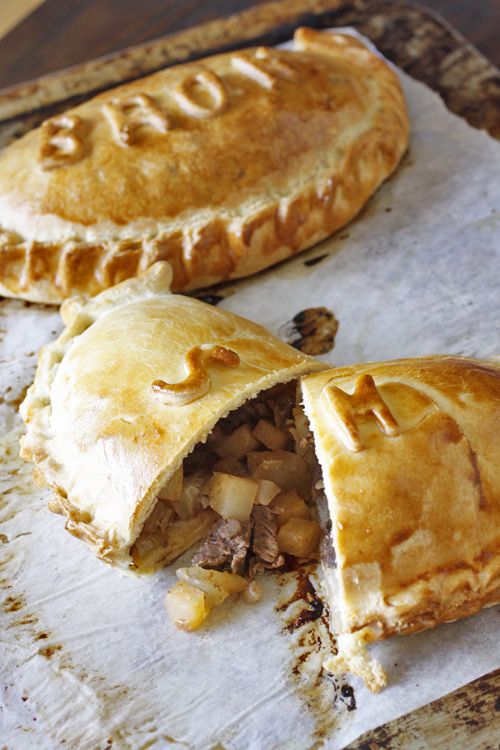brown marsal
brown marsal ,
By www.uniquegiftstips.com .

Total Time: 60 Minutes, Servings: 3 Servings
Ingredients :
Instructions :
Copyright: www.uniquegiftstips.com
Classic Cornish Pasties. The pasty's best known association stems from the 1800s when it evolved to meet the needs of the Cornish tin miners. The pasty was a complete, hand-held hot meal, usually consisting of meat, potato, onion and swede in a pastry casing

Total Time: 60 Minutes, Servings: 3 Servings
Ingredients :
-
For the pastry:
- 4 cups of plain all purpose flour
- 185 grams of butter
- ½ teaspoon salt
- ½ cup of cold water
- ½ cup of cold milk
- For the filling:
- 1 large onion, finely diced
- 250 grams of swede / rutabaga, cubed
- 2 large baking potatoes, diced
- 500 grams of beef rump steak
- 4 tablespoons of tomato sauce or ketchup
- 1 teaspoon of dry mustard power
- freshly ground sea salt and black pepper
- 1 egg, lightly beaten
Instructions :
- In a large bowl or food processor sift the flour and salt.
- Cut the cold butter into small cubes and rub into the flour with your hands or using the food processor, until it resembles course breadcrumbs.
- Make a well in the centre and add sufficient water / milk mixed to form a firm dough. Handle as little as possible while forming it together, as over handling causes pastry the be tough and hard when it is baked. Cover the dough in plastic and refrigerate for 30 minutes. Preheat your oven to 200°C (392°F)Chop the onion finely, discarding the core.Peel the swedeand potatoes and cut into very small cubes around 1cm (½ inch).Slice the steakinto small pieces approximately the same size.Place the meat and vegetables into a large bowl and toss through the seasoning, mustard and tomato sauce, then cover.On a lightly floured bench or board roll the pastry out to around 5 mm (1/8 inch) thick.Cut 6 rounds, using a 15 cm (8 inch) diameter plate as a guide.Arrange the filling evenly in the centre of each round and brush a little of the egg on one edge.Lift the opposite edge of the pastry over the filling to seal the pasty.Fold and pinch at regular intervals along the edge to form a neat crimp.Brush each pasty with egg to glaze and place on a baking trayYou can use any leftover pastry scraps to "name" your Pasty.Bake for ¾ to 1 hour, until golden and cooked through.
Copyright: www.uniquegiftstips.com
Comment 6889 /
Based On 6889 Total User
Rated 4.8
/ Based On 6889 Customer Reviews

